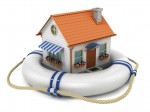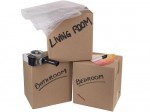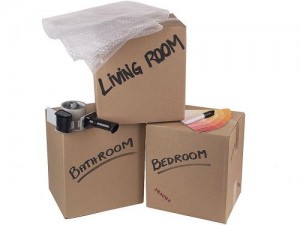Homeowners Insurance Primer

One of the costs of owning a home that buyers need to consider in their budgeting is the cost of insuring the home. A standard policy will cover exterior and interior damage from incidents like vandalism, fire, wind and lightning. It also covers loss of use expenses, damage to structures like sheds or gazebos, and liability and medical costs if someone is injured on your property.
Common exclusions are flood, hurricane and earthquake damage, but you may be able to buy additional coverage for these if desired or required.
Policies vary widely, but in general, homeowners insurance covers the following areas:
Your Structure – Your home itself is protected against damage from fire, wind, smoke, lightning, theft, vandalism and just about anything else that isn’t specifically excluded.
Your Possessions — Your belongings are also covered under your homeowners policy, including losses that happen away from home, for example, if your camera is stolen while on vacation. Keep an inventory everything you own so any claims can be handled accurately and efficiently. Write down serial numbers as well as the date of purchase and original cost of the items, or document on video. Keep the inventory in a fireproof safe or somewhere outside your home, where it can be accessed if your home should be destroyed.
Liability — This aspect of your homeowner’s insurance protects you against lawsuits arising from damage you, your family members or your pets may cause to other people. Liability coverage would pay not only for the actual damage, but also for the cost of defending you in court and for any court-ordered damage payments.
Replacement Cost Coverage – Your insurance would pay what it costs to replace the property with an identical or similar item. For example, if a bicycle was stolen from your garage, your insurance would pay to replace it with a new bicycle of the same or similar make and model (less your deductible).
Actual Cash Value – Your insurance would pay what it costs to replace the property with an identical or similar item, once that item has been devalued for deprecation. To continue the example above, instead of paying for a new bicycle, your insurance would give you the cash value of a used bicycle of the same make and model that was stolen (less your deductible).
Extended Replacement Cost — This type of coverage applies only to the structure of your home. Even though it has the word “replacement” in the name, you’re covered only up to set limits, which may not be enough to pay for the entire value of your home. If you want the assurance that the full replacement value of your home would be paid in the event of disaster, ask for “guaranteed replacement cost”.
If you’ve purchased a condo, or townhouse, ask your insurance agent about specific homeowner policies designed for these types of homes. You’ll want to purchase coverage above the association policy, but the additional coverage is usually very affordable.
Work with your insurance agent to determine how much and what type of coverage is right for your family and your new home. Be sure to ask what discounts may be available, such as rate reductions for smoke alarms, fire extinguishers, security systems and nonsmoking households.
After purchasing your homeowners insurance, make it a practice to review your coverage every year to be sure that it’s keeping up with increasing real estate values and any additions or improvements you may have made. Projects like building a porch or another bathroom can add significant value, so you may need to adjust your policy if you’re planning to renovate your new home. Upgrades (like a new roof) can lead to discounts if they mitigate risks, but potentially hazardous features (like a pool) may require up to $500,000 in coverage.
It may seem costly, but protecting what’s likely the largest investment you’ll make in your lifetime is worth it – and peace of mind is priceless.




 Moving into a new house is exciting, but the list of “to dos” can be overwhelming. You not only have to pack and prep the new house, but you have to tie up all the loose ends at the old place. Here are 10 tasks that are easily overlooked when moving into a new home – if you take care of these, you’ll have a leg up on moving day.
Moving into a new house is exciting, but the list of “to dos” can be overwhelming. You not only have to pack and prep the new house, but you have to tie up all the loose ends at the old place. Here are 10 tasks that are easily overlooked when moving into a new home – if you take care of these, you’ll have a leg up on moving day.

 Kim N. Bregman
Kim N. Bregman